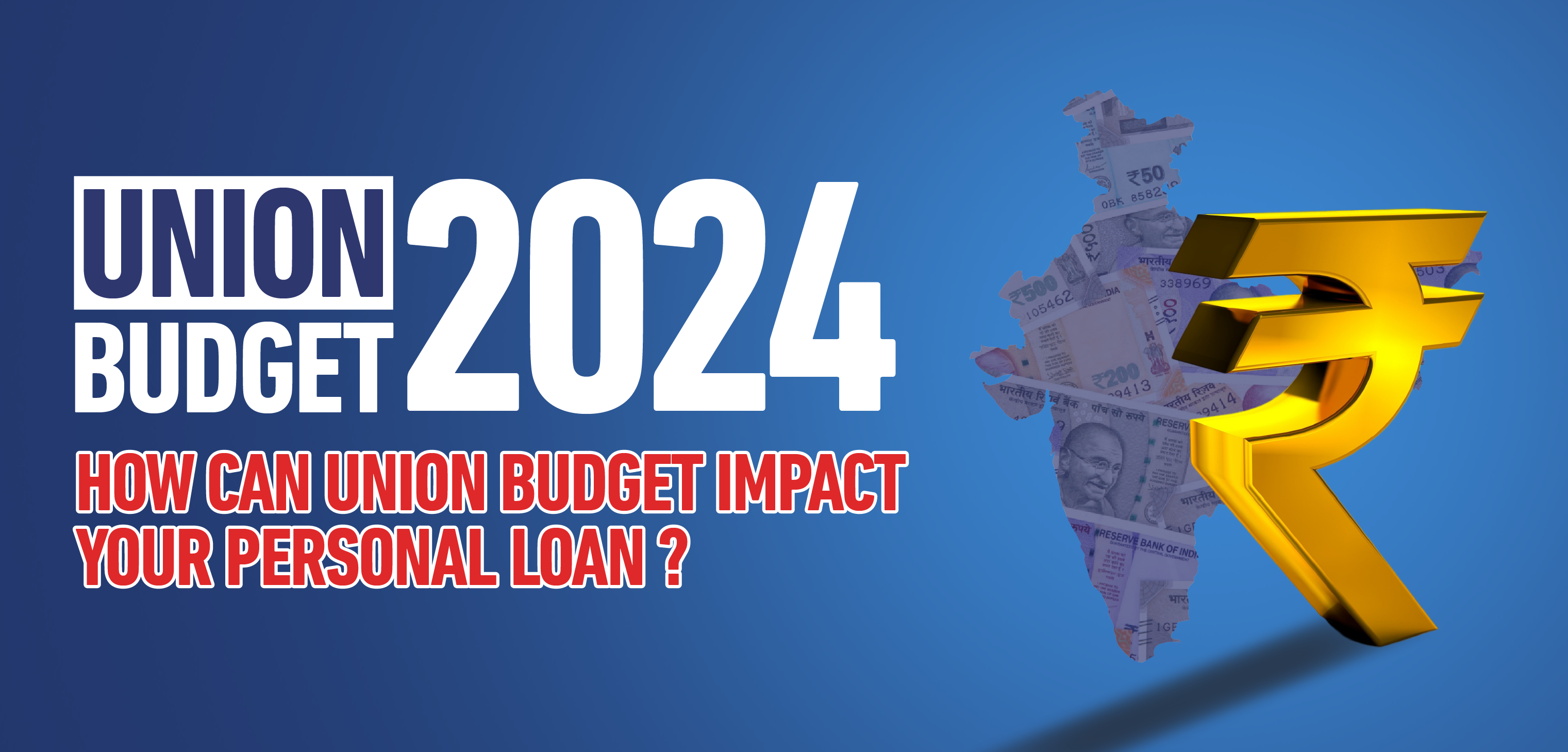Cookies Consent This website uses cookies and other tracking technologies to improve your browsing experience for the following purposes to enable basic functionality of the website, to provide a better experience on the website, to measure your interest in our products and services and to personalize marketing interactions
- Blog

The Union Budget is a crucial annual event that lays out the government’s economic agenda for the coming financial year. While it covers several sectors and policies, working individuals usually scrutinise the announcements surrounding personal finances, including income tax and loans. If you’re considering a personal loan, the upcoming budget might have hidden gems that can significantly impact your borrowing experience. Let’s explore how the Union Budget can affect your personal loan.
How Can the Union Budget Impact My Personal Loan
Interest Rate Changes
One of the most significant ways the Union Budget can affect personal loans is through changes in interest rates. The budget outlines economic policies the Reserve Bank of India (RBI) might adopt, especially concerning the repo rate, which is the rate at which the RBI lends to commercial banks.
If the budget suggests stringent monetary policies, the RBI might increase the repo rate to control inflation. Consequently, banks will face higher borrowing costs. They often pass this cost on to lenders by raising the interest rate on personal loans, making the borrowing experience more expensive.
Conversely, the RBI might lower the repo rate if the budget indicates a more accommodative monetary policy to stimulate growth. Lower borrowing costs for banks typically translate into reduced interest rates on personal loans, making them cheaper for borrowers.
Staying updated on the budget’s stance on monetary policy can help you anticipate changes in loan interest rates and plan your finances accordingly.
Tax Deductions on Interest
The budget could modify the tax deductions you can claim on the interest paid towards loans. These changes directly affect your overall loan cost. Remember, tax deductions essentially lessen your taxable income, potentially reducing your tax liability. While tax benefits are more commonly associated with home loans or education loans, the budget might extend them to personal loans.
The budget might introduce or enhance tax deductions on the interest paid for personal loans, particularly when used for specific purposes such as home renovation or medical expenses. Higher deductions can lower your overall tax liability and reduce the effective cost of the loan.
However, the budget could also curtail existing tax benefits, leading to a higher effective loan cost. Keeping an eye on these potential changes can help you make informed decisions about taking or repaying personal loans.
Subsidies and Welfare Schemes
While not directly related to personal loans, the budget announcements on government subsidies and welfare programs can indirectly affect your loan needs and repayment capacity. Let’s say the budget allocates increased funds to education schemes. It could reduce your need for a personal loan to finance your child’s education. Or, it may improve your ability to repay an existing loan due to the financial aid.
The Union Budget unveils a roadmap for the country’s financial future. Changes in interest rates, tax policies, lending regulations, and government support schemes can influence your lending in the future. Staying updated on the latest budget announcements empowers you to make informed decisions about your personal loan. So, stay informed, and remember, a well-planned personal loan can be a powerful tool to achieve your financial goals.




























































